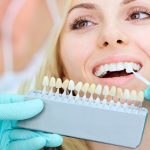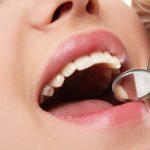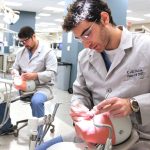Why Are My Teeth Loose? Understanding the Causes and Prevention
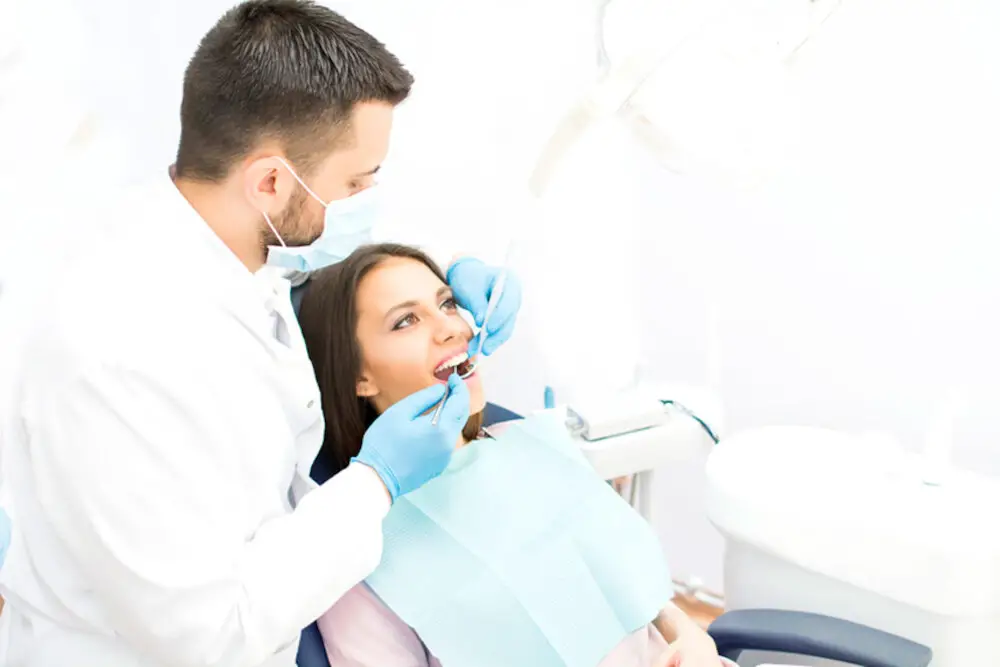
Loose teeth can be a frightening experience for anyone. Not only does it affect your ability to eat and speak, but it can also be a sign of a more serious underlying dental issue. Understanding the causes and prevention of loose teeth is crucial to maintaining good oral health and preventing further damage. There are a variety of reasons why teeth may become loose, including gum disease, injury, and even genetic factors. However, the most common cause of loose teeth is periodontitis, a severe form of gum disease that affects the tissues that support your teeth. If left untreated, periodontitis can cause tooth loss and even lead to more severe health problems such as heart disease and stroke. Therefore, it is essential to understand the causes and prevention methods to ensure that your teeth remain healthy and strong for years to come.
Loose teeth can be a sign of various dental issues, such as gum disease, injury, and teeth grinding. Gum disease is one of the primary causes of loose teeth, as it leads to the degradation of the gum tissues and bone that support the teeth. When this happens, the teeth become unstable and can shift around, eventually leading to tooth loss. Injury, such as a hard blow to the face or jaw, can also cause teeth to become loose. Teeth grinding, also known as bruxism, is another common cause of loose teeth, as it puts excessive pressure on the teeth and can damage the supporting structures. To prevent loose teeth, it’s crucial to maintain good oral hygiene habits, visit the dentist regularly, wear a mouthguard during sports activities, and address any dental issues promptly.
Understanding the causes and prevention of any dental issue is crucial for maintaining optimal oral health. In the case of loose teeth, identifying the underlying cause is vital to prevent further damage and tooth loss. Gum disease, injury, and teeth grinding are some of the common causes of loose teeth, and regular dental checkups can help detect these issues early on. Proper oral hygiene, including brushing twice a day, flossing, and using mouthwash, can prevent gum disease and other dental problems. Additionally, wearing a mouthguard while playing sports or grinding teeth can reduce the risk of injury and tooth damage. By understanding the causes and taking preventive measures, individuals can maintain a healthy and beautiful smile for years to come.
Gum Disease
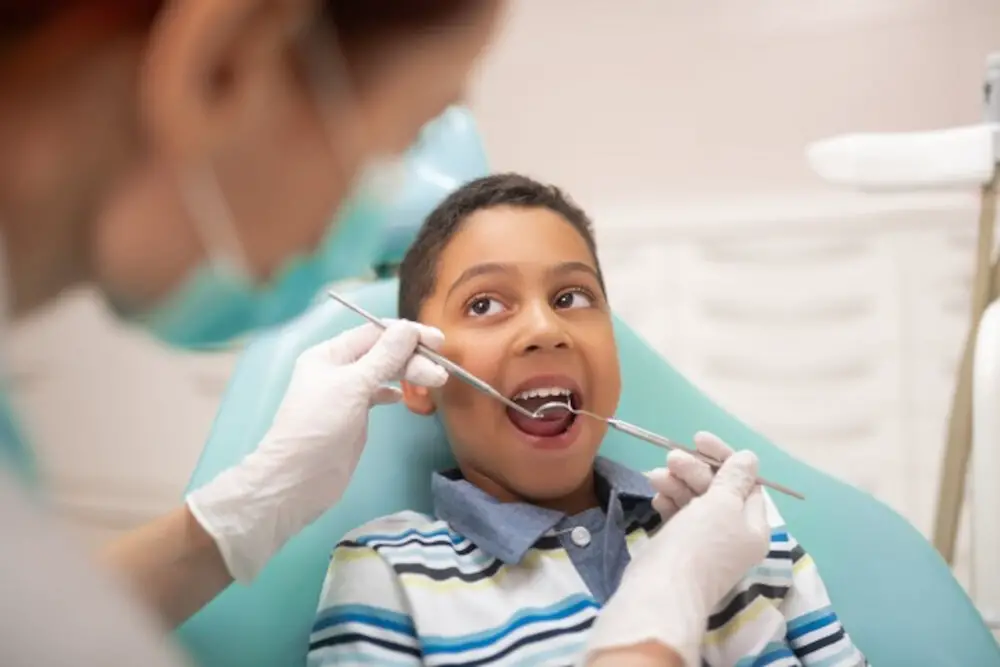
Gum disease, also known as periodontal disease, is a common condition that affects the gums and tissues surrounding the teeth. It is caused by the buildup of plaque, a sticky film of bacteria that forms on the teeth. If left untreated, gum disease can lead to tooth loss and other serious health problems. The early stages of gum disease are characterized by red, swollen, and bleeding gums. As the disease progresses, the gums may begin to pull away from the teeth, creating pockets where more bacteria can grow. Over time, the bone and tissue that support the teeth may be destroyed, causing the teeth to become loose and eventually fall out. Preventing gum disease is essential to maintaining good oral health. The most effective way to prevent gum disease is to practice good oral hygiene. This includes brushing your teeth twice a day with a fluoride toothpaste, flossing daily, and visiting your dentist regularly for cleanings and checkups. In addition to good oral hygiene, there are other steps you can take to reduce your risk of gum disease. These include quitting smoking, eating a healthy diet, and managing any underlying health conditions that may contribute to gum disease, such as diabetes. By taking these steps, you can help keep your teeth and gums healthy and prevent the onset of gum disease.
Gum disease, also known as periodontitis, is a condition that affects the gums surrounding the teeth. It is caused by a buildup of plaque and bacteria, which can lead to inflammation and infection of the gums. As the disease progresses, the gums may begin to recede, exposing more of the tooth’s root and making it more vulnerable to decay and damage. In severe cases, the bone supporting the teeth can also be affected, leading to loose teeth that may require extraction. Proper oral hygiene, including regular brushing and flossing, as well as routine dental checkups, can help prevent and treat gum disease before it causes permanent damage to the teeth and gums.
Gum disease, also known as periodontal disease, is a common condition that affects the gums and bone supporting the teeth. Some common symptoms and signs of gum disease include red, swollen, or tender gums, bleeding gums during brushing or flossing, bad breath, receding gums, loose teeth, and changes in the way your teeth fit together when you bite. Gum disease can be caused by a variety of factors, including poor oral hygiene, smoking, certain medications, and genetic predisposition. If left untreated, gum disease can lead to tooth loss and other serious health complications, so it’s important to take steps to prevent and treat this condition.
Prevention and treatment options for loose teeth depend on the underlying cause. Good oral hygiene practices, such as brushing twice a day, flossing daily, and regular dental check-ups, can help prevent gum disease and tooth decay, two common causes of loose teeth. If gum disease is the cause, treatment may involve deep cleaning, medication, or surgery. For other causes, such as trauma or osteoporosis, treatment will vary. If you have loose teeth, it’s important to seek prompt treatment to prevent further damage and potential tooth loss. Your dentist can help determine the cause of your loose teeth and recommend appropriate treatment options.
Trauma

Trauma is one of the main reasons why teeth can become loose. Trauma can occur due to several reasons, including accidents, sports injuries, or even biting down too hard on something. When a tooth is traumatized, the ligaments that hold the tooth in place can become damaged, causing the tooth to become loose. In some cases, the tooth may even be knocked out completely. Trauma can also cause fractures or cracks in the tooth, which can further weaken its structure and cause it to become loose over time. It is important to seek professional dental care immediately if you have experienced dental trauma. A dentist will be able to assess the damage and determine the best course of action to prevent further damage to the tooth. In some cases, a splint may be used to stabilize the tooth and allow the ligaments to heal. In more severe cases, a root canal or extraction may be necessary. By seeking prompt treatment, you can increase your chances of saving the tooth and preventing further dental complications.
Trauma can cause loose teeth due to the impact it has on the supporting tissues of the teeth. When an individual experiences trauma, such as a blow to the face or a sports injury, the force can cause damage to the periodontal ligament, which is responsible for holding the tooth in place. Additionally, trauma can cause fractures to the jawbone or the tooth itself, which can further compromise the stability of the tooth. If left untreated, loose teeth caused by trauma can lead to tooth loss, which can have a significant impact on an individual’s oral health and overall well-being. Therefore, it is important to seek immediate dental attention if you experience any trauma or notice that your teeth are becoming loose.
Trauma to the mouth can cause a wide range of dental problems, including loose teeth. Some common types of trauma to the mouth include sports injuries, car accidents, and falls. These types of trauma can cause teeth to become loose or even knocked out. In addition to the physical damage caused by trauma, it can also lead to emotional distress and anxiety, which can further exacerbate dental problems. The effects of trauma on teeth can vary depending on the severity of the trauma and how quickly treatment is sought. It’s important to seek immediate dental care if you experience any type of trauma to the mouth to prevent further damage and promote proper healing.
Prevention is key when it comes to loose teeth. Good oral hygiene practices such as brushing twice a day, flossing daily, and regular dental check-ups can help prevent gum disease, which is a major cause of loose teeth. Additionally, avoiding tobacco and limiting alcohol consumption can also help prevent gum disease. In cases where loose teeth have already occurred, treatment options depend on the underlying cause. Gum disease may require deep cleaning or surgery, while injury or tooth grinding may require a dental appliance or splint. In severe cases, extraction and replacement with a dental implant may be necessary. It is important to seek treatment as soon as possible in order to prevent further damage and preserve oral health.
Bruxism
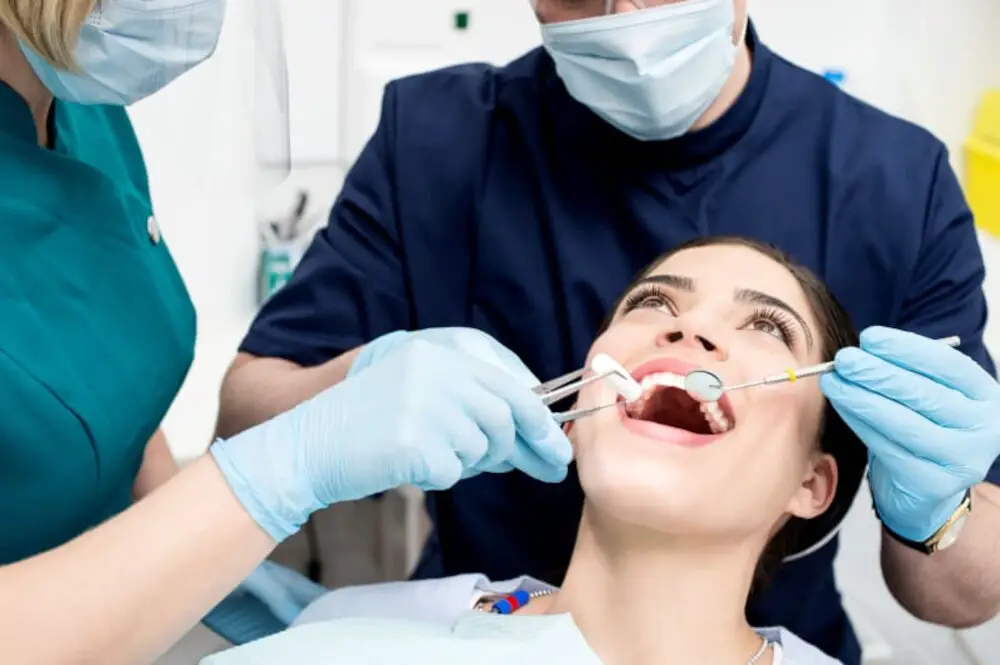
Bruxism is a condition that involves grinding, clenching, or gnashing of teeth, often involuntarily. This can occur during the day, but it is most common during sleep. Bruxism can cause a variety of problems, including tooth damage, headaches, and jaw pain. It can also lead to loose teeth, as the constant pressure and grinding can wear down the teeth and loosen them from their sockets. In severe cases, bruxism can even lead to tooth loss. There are several causes of bruxism, including stress, anxiety, and sleep disorders. It can also be caused by certain medications or substances, such as caffeine or alcohol. To prevent bruxism, it is important to manage stress and anxiety levels, and to avoid consuming stimulating substances before bed. Wearing a mouthguard while sleeping can also help protect teeth from the effects of grinding and clenching. If bruxism is severe, a dentist may recommend other treatments, such as dental work to repair damaged teeth or physical therapy to relieve jaw pain. Overall, it is important to seek treatment for bruxism as soon as possible to prevent further damage to the teeth and jaw.
Bruxism is a common dental issue characterized by the grinding, clenching, or gnashing of teeth, usually during sleep. The condition is often caused by stress or anxiety, and it can have serious effects on the teeth. Over time, the constant grinding can wear down the enamel, leading to tooth sensitivity, fractures, and even tooth loss. Additionally, bruxism can cause the teeth to become loose, as the constant pressure and movement can damage the ligaments and tissues that hold the teeth in place. In severe cases, bruxism can even cause jaw pain, headaches, and other TMJ-related problems. To prevent bruxism and its damaging effects, it is important to seek treatment from a dental professional and practice stress-reducing techniques.
Bruxism, often referred to as teeth grinding, is a condition that can lead to loose teeth if left untreated. The symptoms and signs of bruxism can be varied and may include teeth grinding or clenching, headaches, earaches, jaw pain, and muscle soreness in the face and neck. Additionally, people who grind their teeth may experience tooth sensitivity, chipped or cracked teeth, and worn-down tooth enamel. Bruxism can occur during the day or at night, with many people not even realizing they are doing it. If you suspect that you may be grinding your teeth, it is important to seek treatment from your dentist to prevent further damage to your teeth and jaw.
Prevention and treatment options are essential for maintaining healthy teeth and preventing them from becoming loose. The first step towards prevention is maintaining good oral hygiene by brushing and flossing regularly. Additionally, avoiding tobacco products and limiting alcohol consumption can also promote good oral health. In cases where teeth have become loose, treatment options may include splinting or bonding to hold the teeth in place, or in more severe cases, surgery may be necessary. It is important to address loose teeth promptly to avoid further complications such as infection or tooth loss. Working closely with a dentist can help identify the underlying causes of loose teeth and develop a personalized prevention and treatment plan to promote optimal oral health.
Osteoporosis

Osteoporosis is a condition that affects the bones, making them weak and brittle. It is often referred to as a silent disease because it progresses slowly, without any noticeable symptoms. This condition affects both men and women, but women are more susceptible to developing osteoporosis after menopause. Osteoporosis occurs when the body loses too much bone, makes too little bone or both. When bones become weak, they can break more easily than healthy bones, leading to fractures of the spine, hip, and wrist. Osteoporosis is a preventable disease, and there are steps you can take to reduce your risk. These include getting enough calcium and vitamin D, exercising regularly, avoiding smoking and excessive alcohol consumption, and taking medications if prescribed by your doctor. In the context of dental health, osteoporosis can affect the jawbone, leading to tooth loss. When the jawbone becomes weak, it cannot support the teeth properly, causing them to become loose and eventually fall out. This can be a significant problem for people with osteoporosis, as it can affect their ability to eat and speak properly. If you have osteoporosis, it is essential to maintain good oral hygiene and schedule regular dental checkups to monitor your dental health. Your dentist may recommend treatments such as dental implants or dentures to replace missing teeth and restore your ability to chew and speak normally. By taking care of your bones and teeth, you can enjoy a healthy, active lifestyle well into your golden years.
Osteoporosis is a medical condition that weakens bones, causing them to become brittle and fragile. It is a result of the body losing too much bone or not making enough bone, or both. While osteoporosis primarily affects the bones in the spine, hips, and wrists, it can also have effects on teeth. The jawbone, which supports the teeth, can become weakened due to osteoporosis, resulting in tooth loss or loose teeth. Additionally, osteoporosis can cause a decrease in the density of the jawbone, which can make it difficult for dental implants to be successful. Maintaining good oral hygiene and taking steps to prevent osteoporosis can help protect your teeth and overall oral health.
Prevention and treatment options for loose teeth depend on the underlying cause. Good oral hygiene practices, such as brushing twice a day and flossing daily, can prevent gum disease and decay, which can lead to loose teeth. Regular dental check-ups and cleanings can also help detect and treat any dental problems early on. In cases where loose teeth are caused by a bite misalignment, orthodontic treatment may be necessary to properly align the teeth and prevent further damage. For more advanced cases of gum disease, procedures such as scaling and root planing or periodontal surgery may be required to restore the health of the gums and prevent further tooth loss. Ultimately, early detection and prompt treatment are key to preventing and treating loose teeth.
Loose teeth are a common dental problem experienced by many individuals. The most common causes of loose teeth include gum disease, trauma, and grinding. Gum disease is the leading cause of loose teeth and occurs when bacteria build up in the gums, leading to inflammation and the breakdown of the bone that supports the teeth. Trauma from accidents or sports injuries can also cause teeth to become loose. Grinding or clenching of teeth can also lead to loose teeth over time. To prevent loose teeth, individuals should maintain good oral hygiene habits, such as brushing and flossing regularly, visiting the dentist for regular check-ups, and wearing mouthguards during sports or at night to prevent grinding. Early detection and treatment of gum disease can also help prevent loose teeth.
Seeking professional dental advice is crucial when it comes to maintaining good oral health. Loose teeth can be a sign of various dental issues such as gum disease, injury or dental decay, and ignoring the problem can lead to more serious complications. Consulting a dental professional can help identify the underlying cause of the problem and prevent further damage. A dentist can recommend appropriate treatment options, such as deep cleaning or surgery, and provide advice on the best oral hygiene practices to prevent future issues. Regular dental check-ups and seeking professional advice at the earliest sign of a problem can help ensure healthy teeth and gums for a lifetime.
Conclusion
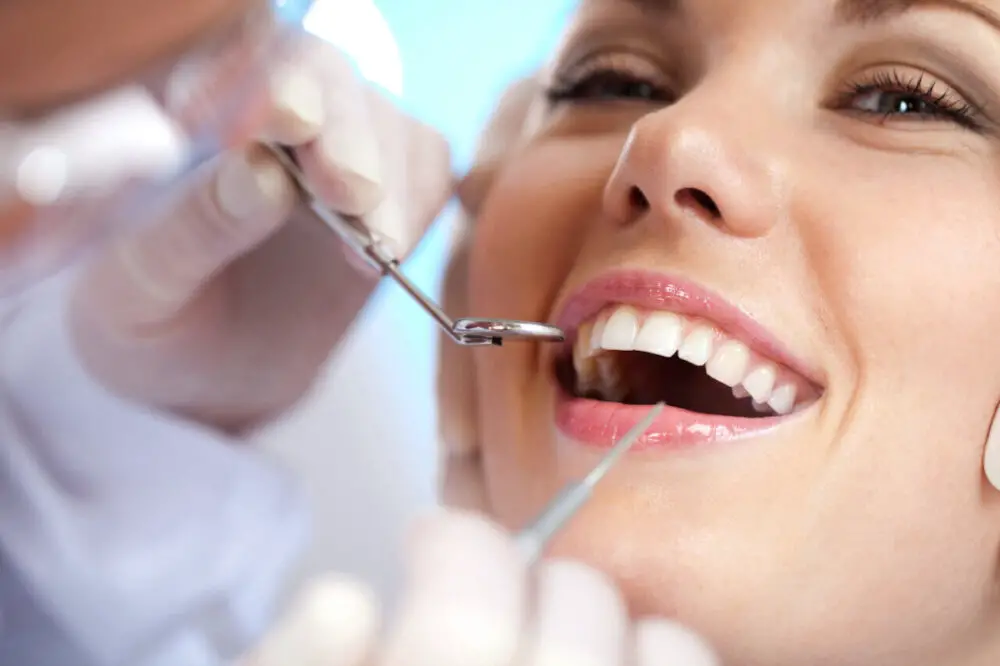
In conclusion, loose teeth can be caused by a variety of factors, including gum disease, injury, and genetics. However, with proper oral hygiene and regular dental check-ups, many cases of loose teeth can be prevented or treated. Taking care of your teeth and gums is crucial for maintaining overall oral health and preventing tooth loss. So, if you are experiencing loose teeth or other dental issues, don’t hesitate to consult with your dentist and take the necessary steps to keep your smile healthy and strong.

